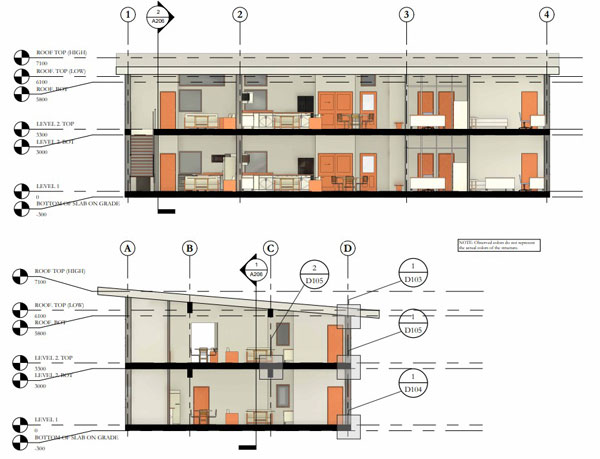Jonah Wright, the 2024 winner of a major Canada Green Building Council award for student innovation in green building, admits he had personal reasons for embarking on the deep dive into housing that earned him the award.
Wright, a recent graduate in civil engineering from the University of Victoria in British Columbia, developed his own methodology to deal with multiple housing imperatives, creating “SEDA design”: sustainable, efficient, durable, affordable.
His intent was to address not only sustainability and affordability in housing but also climate risks such as floods.
Why devote a thousand hours, many outside of school time, writing a report that contained separate research papers of 25,000 and 13,000 words — and those were only to create a knowledge base to help him define the problem?
‘You’re kind of hooped’

Canada Green Building Council award winner
“Part of it is, I think initially, a selfish reason,” said Wright, who calls himself a family-matters person. “I want to live in Vancouver, as do a lot of my friends and family who are encountering some of the same issues with affordability. Being able to try and own and rent a place here, it’s quite difficult, and it makes me really upset when you have your entire family and the one generation above who are all settled and have roots.
“If you want to grow up in the same space…you’re kind of hooped.”
On Aug. 7, the CAGBC Awards announced Wright as this year’s winner of the Andy Kesteloo Memorial Project Award, which goes to a student project that “demonstrates leadership, innovation and a creative vision” in the field of green building and communities.
Wright worked on his project for over two years, finally incorporating it into his senior year research project course.
The report was titled Revising Building Practices via Research, Mapping and Site Specific Design: A Response to the BC Housing Crisis.
UVic associated professor Ralph Evins wrote in a letter of support that Wright started the project in August of 2022 “out of a true passion for sustainable housing in the province.” Professor Phalguni Mukhopadhyaya offered guidance.
“Roughly half of the project was done outside of UVic, excluding full-time classes and full-time work terms,” stated Evins. “It is exceptionally rare to see an individual produce a project of this calibre on his own before finishing an undergraduate degree.”
Wright explained, “I find a lot of topics in school are really important, but also really theoretical. I wanted some outlet to be able to get the knowledge that I would in school, but then also try and start working on things and start figuring things out.”
Wright’s project is divided into three main sections — the first, the voluminous background research on housing affordability, climate risks and sustainability metrics relevant to B.C.’s Climate Zone 4; then regional design considerations including mapping with nine detailed hazard maps, one generalized risk Index map and two affordability maps; and finally a site-specific design focused on creating a residential triplex design for a mapped area.
Deliverables included a 14-page drawing set, Passive House planning package, structural load package and cost estimates, a depreciation report and carbon analysis.

GIS mapping underutilized
Key conclusions included the observation that in Vancouver, it’s possible to design and build a high-energy-performance, structurally resilient home that is cheaper and less carbon intensive than some existing homes.
GIS software for mapping is an “incredibly powerful” tool, Wright said, that is not currently being used to its full potential.
Wright concluded “current codes, design procedures, policy objectives and societal norms often hinder the resilience, cost-effectiveness and sustainability of our building stock.”
Commented Wright, “I think because our building industry is so compartmentalized in terms of specializations, it’s difficult to see what is the priority…they all seem to have different goals that may or may not be aligned.”
Wright is currently in the midst of a year-long trip around the world so he won’t be settling into a job for some time.
When he does, he hopes to continue to develop what he calls his “hobby project” — but given that the themes are so diverse, he half-jokingly says he may have to take two jobs to fulfill his ambitions.
Said Wright, “If there is merit in anything I am saying, I would love to see that to fruition when I get a job.”
Follow the author on X/Twitter @DonWall_DCN.











Recent Comments